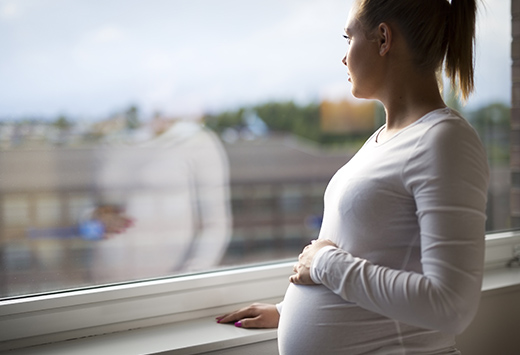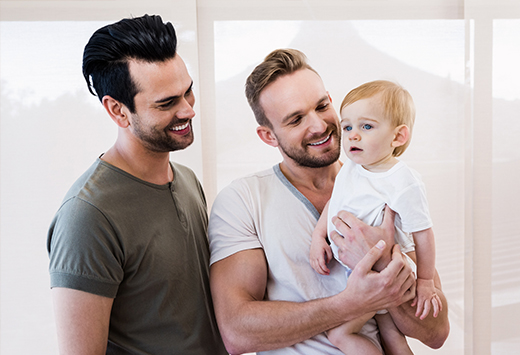When you're in the process of adopting a baby, there are countless details to consider—from home studies to finalization. Among these important considerations is something that might not immediately come to mind: your child's birth certificate. This vital document plays a significant role in the legal adoption process and ultimately undergoes a change that officially recognizes your new family.
Understanding Birth Certificates in Domestic Newborn Adoption
Birth certificates serve as official records of a person's birth, documenting essential information like date of birth, place of birth, and parentage. For newborns placed in domestic adoption, birth certificates hold particular significance, because they provide documentation of their legally recognized family.
The Two Types of Birth Certificates in Adoption
In most domestic adoption placements, there are two different birth certificates:
- Original Birth Certificate: Created at the time of birth, listing the birth parent(s) as the legal parent(s)
- Amended Birth Certificate: Issued after the adoption is finalized, listing the adoptive parent(s) as the legal parent(s)
The Original Birth Certificate: What You Should Know
After a baby is born, hospital staff gather the necessary information to create the baby’s original birth certificate. This information typically includes:
- The child's name (as given by the birth parent(s))
- Date, time, and place of birth
- The birthmother's name and usually her address
- The birthfather's name (if known and if he has acknowledged paternity)
- Sometimes additional information like the parents' ages, occupations, or birthplaces
For children who will be placed for adoption, this original birth certificate is still created following the same process as for any other child. The birth parents are listed as the legal parents at this point because the adoption has not yet been finalized.
Access to the Original Birth Certificate
Once the adoption is finalized, the original birth certificate is typically sealed by the state vital records office. This means it's no longer accessible to the general public. Laws regarding who can access the original birth certificate vary significantly by state:
- Some states seal the original birth certificate completely, making it accessible only through court order
- Other states have implemented various levels of access for adoptees when they reach adulthood
- A growing number of states now have laws allowing adult adoptees to access their original birth certificates, often through a request process
For adoptive parents, it's important to note that you typically will not receive a copy of your child's original birth certificate as part of the adoption process. This document remains with the state vital records office where the child was born.
The Transition Process: From Original to Amended Birth Certificate
The process of amending a birth certificate happens after the adoption is legally finalized in court and the judge issues the final adoption decree. With the adoption decree in hand, the birth certificate amendment process can begin. Here's what typically happens:
- Adoption Finalization: A judge issues a final decree of adoption, formally establishing you as your child's legal parent(s).
- Court Order for New Birth Certificate: As part of the finalization process, the court will issue an order directing the vital records office in the state where the child was born to seal the original birth certificate and create an amended one.
- Processing by Vital Records: The vital records office in the child's birth state receives the court order and begins the process of creating the amended birth certificate.
- Creation of Amended Birth Certificate: The vital records office creates a new birth certificate listing the adoptive parent(s) as the legal parent(s).
- Issuance of Amended Birth Certificate: The amended birth certificate is issued to the adoptive family, usually several weeks or months after finalization.
It's important to note that this process can take time—sometimes several months depending on the state. Your adoption attorney or agency should be able to guide you through the specific timeline and requirements in your situation.
Interstate Adoption Considerations
If your child was born in a different state than where you live and where the adoption is finalized, the process involves an additional step. The court in your state will issue an order that must be sent to the vital records office in the child's birth state. This interstate process can sometimes take longer, as it involves coordination between different state agencies.
The Amended Birth Certificate: What to Expect
The amended birth certificate becomes your child's new legal birth certificate. Here's what you can expect:
What Information Changes
On the amended birth certificate:
- Your name(s) will replace the birth parent(s)' names in the parent sections
- If applicable, your child's name will be changed to the name you've chosen
- Sometimes, the child's place of birth might be listed as your county of residence rather than the actual birthplace, though this varies by state
What Information Stays the Same
Despite the changes, some information remains consistent:
- The child's date of birth
- Usually the time of birth
- Typically the hospital or location of birth (though as mentioned, some states may change this)
Appearance of the Amended Certificate
In most states, the amended birth certificate looks identical to any other birth certificate. There is typically no mention of adoption on the face of the document. This means that for all practical purposes, including school registration, passport applications, and other official uses, this certificate functions exactly like any other birth certificate.
When Will You Receive the Amended Birth Certificate?
The time it takes to receive your child's amended birth certificate can vary significantly based on several factors:
- State Processing Times: Some states process these changes more quickly than others
- Interstate Coordination: If your child was born in a different state than where you live, the process may take longer
- Administrative Backlogs: Sometimes vital records offices experience backlogs that can delay processing
Typically, you can expect to receive the amended birth certificate within one to six months after finalization, though in some cases it may take longer. Your adoption attorney can provide more specific guidance based on your particular situation and the states involved.
What to Do While Waiting
While waiting for the amended birth certificate, you may need other documentation to prove your legal relationship to your child. The adoption decree itself serves as legal proof of your parental rights and can usually be used for purposes such as:
- Adding your child to your health insurance
- Claiming your child as a dependent on tax returns
- Enrolling your child in school
- Applying for a Social Security number for your child
Common Questions About Adoption Birth Certificates
Will the birth certificate show that my child was adopted?
In most states, the amended birth certificate for a domestically adopted newborn does not indicate that the child was adopted. It appears like any other birth certificate, listing the adoptive parents as the child's parents. There is usually no distinguishing mark or notation that would identify it as an amended certificate related to adoption.
What if there are errors on the amended birth certificate?
If you notice errors on your child's amended birth certificate, it's important to address them promptly. Contact your adoption attorney, who can guide you through the process of requesting corrections from the vital records office that issued the certificate.
Can we choose our child's new name?
Yes, as part of the adoption process, you can choose a new name for your child, which will be reflected on the amended birth certificate. Some families choose to incorporate elements of the child's original name or birth parent(s)’ name(s), while others select an entirely new name.
State Variations in Birth Certificate Laws
Laws regarding birth certificates in adoption vary by state. Some key variations include:
- Access to original birth certificates: Some states allow adult adoptees to access their original birth certificates, while others require court orders or have mutual consent registries.
- Information included: States vary in what information they include or change on amended birth certificates.
- Process and timeline: The administrative process and timeline for issuing amended birth certificates differ from state to state.
Your adoption attorney should be familiar with the specific laws in your state and your child's birth state, and can provide guidance tailored to your situation.
Moving Forward: Next Steps in Your Adoption Journey
Understanding the birth certificate process is just one aspect of the complex but rewarding journey of domestic newborn adoption. If you're considering adoption, Lifelong Adoptions is here to support you every step of the way. Our experienced team understands the many facets of the domestic adoption journey, including important documentation like adoption birth certificates.
To learn more about how we can help you build your family through adoption, we invite you to complete our free adoption application. This first step begins your journey with us and allows our team to provide personalized guidance for your unique situation.
Disclaimer: This article provides general information about birth certificates in domestic newborn adoption and should not be considered legal advice. Laws vary by state, and the process may differ based on individual circumstances. Always consult with an adoption attorney familiar with the laws in your state for guidance specific to your situation.




